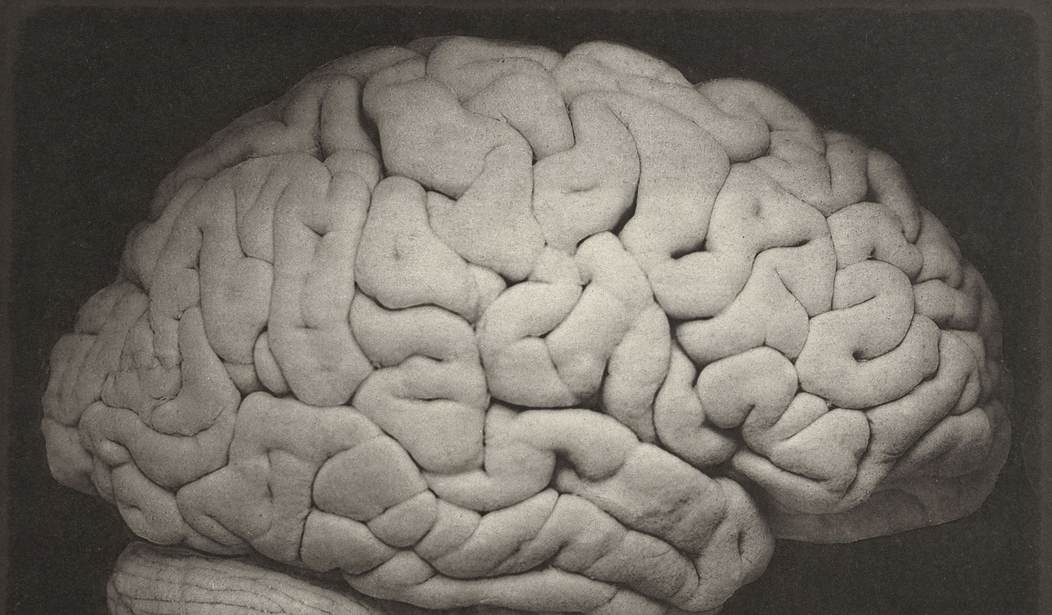One of the neater things about all the years I spent in medical manufacturing and biotech was seeing some of the differences the exploding field of medical technology could make in some people's lives. Case in point: I was working with a company that made brain implants for, among other things, patients with severe essential tremors. That's a condition that can cause one's hands to shake; sometimes mildly, sometimes uncontrollably, to the point where the patient has no control over their own hands and arms.
The company had an implant, a computer chip hooked to an implant that was delivered to a structure about the size of a grain of rice within the patient's brain. One of the films I reviewed that described the product showed a young man who had, through his entire life, no control over his hands and arms, which flailed uncontrollably.
Then you heard a doctor's voice: "OK, we're turning it on now." Suddenly, the young man's hands and arms stopped flailing. The patient held his hands up, a look of wonder spreading over his face as he realized that for the first time, his hands belonged to him.
That's the good side of medical technology. But a recent piece by the Brownstone Institute's Josh Stylman presents some more questionable possibilities.
Consider the trajectory: First, we carried computers in our pockets. Then we wore them on our bodies. Now, researchers are developing ways to put them inside our brains while companies collect our DNA through consumer services marketed as harmless genealogical exploration. But unlike a smartphone you can turn off or remove, or even a password you can change after a data breach, your biological data is permanent and uniquely yours. This becomes especially concerning when we consider technologies designed to interface directly with our genetic machinery. Moderna CEO Stéphane Bancel has described mRNA technology in revealing terms: ‘Since mRNA is an information-based platform, it works similar to a computer’s operating system, letting researchers insert new genetic code from a virus – like adding an app – to create a new vaccine quickly.’
That seems like a grand leap into uncharted waters. But this tech could go far, far beyond just mRNA vaccines; this could blur the lines between humanity and technology:
Scientists are already detailing systems that would monitor all ~86 billion neurons in your brain, transmitting that data to the cloud at speeds of over 5 quadrillion bits per second. Researchers are even modeling nanonetworks on the nervous system’s own signals, aiming to treat brain disorders – or potentially monitor them in real time. The theoretical benefits of such technology are often touted, but we need to confront what truly matters: at what cost to human agency? To bodily self-determination? To the very essence of what makes us human?
This seems the ultimate invasion of privacy. Nobody, nowhere, would have any secrets anymore. And where would this cloud be maintained? Who would have access to it? The "cloud" isn't some ephemeral thing; all of this data has to be on a physical server or servers. Who would have access to this data? How would it be secured? Could we opt out? Could we wipe our data from this cloud? And, no, not "like with a cloth."
I’m far from an expert on these kinds of things. I’m a biologist by training, but my particular field was field zoology and behavior, and it’s been a while now since I did any actual work in the field, although I try to stay current. So, neurophysiology isn’t exactly my cup of tea.
But I’m concerned. Could this be backhacked? It’s presumably relying on a wireless signal. Could someone put a thought in your head? Or just give you a bad headache? Or, looking at it from the other direction, could someone take control of your phone or other devices through this system?
Granted the latter one can happen in a number of ways already; it’s a risk we take when using modern tech. But the “brain implant” part of it, to me, seems fraught.
See Also: Does Science Fiction Predict Science Future?
So It Begins: First Person With Brain Chip Implant Can Play Video Games With His Mind
I've always said, we solve today's problems with tomorrow's technology. But this technology looks to me like a solution looking for a problem.
There has been a lot of bandwidth burned up talking about a kind of digital immortality, where one could upload one's mind to a server, to be maintained in a virtual reality forever, and the kind of tech Mr. Stylman describes seems to hint at that. But looking at this as a biologist, well, that can't happen. Any such "upload" would only be a copy. You cannot upload consciousness; you cannot upload identity. What would exist on that server would only be a simulation.
I don't think we, as a species, as a society, are prepared for this, and the unintended consequences would likely not be worth any benefit derived.















